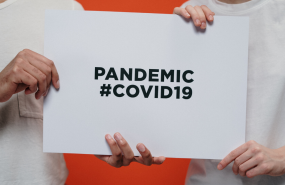Gender assessment tool for national HIV and TB responses
- 27.09.2016 23:36
- Post Views: 1,183
The first ever gender assessment tool for national HIV and TB responses to support countries in Global Fund applications builds on the UNAIDS HIV Gender Assessment Tool launched in 2013– and adapted to include TB.
In 2014, over 60% of TB incidences occurred in men. Despite higher HIV prevalence among women in sub-Saharan Africa, incidence of TB is higher in men except in women who are 15-24 years old in areas of high HIV prevalence. Male-specific risks of becoming ill with TB, for example, occurs when they have more social contacts, work in high-risk settings, smoke, possible high alcohol consumption, and limited health seeking behavior. Female-specific risks include higher stigma, delayed diagnosis, less access to treatment services and previous policies of passive TB case-finding. High rates of extra-pulmonary TB among women also mean they are harder to screen and diagnose. Gender-responsive TB services are needed to capture these different needs.

This tool is a document intended to assist countries in assessing their HIV and TB epidemics and responses from a gender perspective, to ensure the responses are gender sensitive, transformative and effective in responding to HIV and TB. The gender assessment identifies gender transformative priorities and actions to support countries in preparing gender sensitive concept notes and grant applications to the Global Fund to Fight AIDS, TB & Malaria.
The gender assessment process, led by national stakeholders and partners, helps to identify gender-related barriers to services as well as the specific needs of women, men, transgender people and key and vulnerable populations, in the context of HIV, TB or HIV/TB co-infection. The process also increases and reinforces political commitment and increases civil society engagement and capacity to better respond to these needs.
The tool describes the process step by step and is split into 4 relevant stages:
STAGE 1 Preparing for the gender assessment of the national HIV/TB response
STAGE 2 Knowing the national HIV and TB epidemics and contexts
STAGE 3 Knowing the national HIV and TB responses
STAGE 4 Analysing and using the findings of the assessment for a gender-transformative HIV and TB response
Also the tool is supported by useful practical annexes and a terminology guidance.
Related News
Roundtable organized by Global Fund
On 26 May (Russian) and 27 May (English) at 10.00 am (Geneva time) Developing Country NGO delegation of the Global Fund Board and the Global Fund Secretariat are organizing the Roundtable “Responses to HIV and TB in times of COVID-19 – strengthening engagement with civil society and communities in Eastern Europe and Central Asia (EECA)” […] Read moreTB Europe Coalition launches series of webinars on opportunities for civil society and TB communities within the Global Fund Allocation Cycle 2020-2022
TB Europe Coalition will conduct a series of webinars – “Opportunities for civil society and TB communities from EECA region within the Global Fund Allocation Cycle 2020-2022″ – to inform representatives of the civil society organizations and communities about opportunities and practical tools available to engage with and influence the national funding requests within the Global […] Read moreCOVID-related Funding Opportunities for Civil Society Working on HIV, TB, Malaria, Gender and Human Rights
We would like to share with you the information about few COVID-related Funding Opportunities available for Civil Society Working on HIV, TB, Malaria, Gender and Human Rights in EECA. Post Views: 3,246 Read moreServices for migrants and refugees from Ukraine – HIV/TB care with a focus on key populations
Due to the increasing flows of refugees from Ukraine because of Russia’s invasion of Ukraine, the EECA Regional Platform created a spreadsheet to fill contacts details of face-to-face and online services for refugees and migrants (with a focus on HIV/TB care and key population groups).
Regional Platform – EECA
This web-resource is a part of new regional communication and coordination project “Regional Civil Society and Community Support, Coordination and Communication Platform - EECA”, implemented by Eurasian Harm Reduction Association (EHRA).
Tags
See also
-
EECA’s Regional Platform monthly Newsletter #21, February 2026 26.02.2026 11:56
-
Webinar: Results of the 54th meeting of the Global Fund‘s Board 23.02.2026 10:24
-
EECA’s Regional Platform monthly Newsletter #20, January 2026 27.01.2026 12:58
-
Global Fund Eligibility List 2026 27.01.2026 11:19







